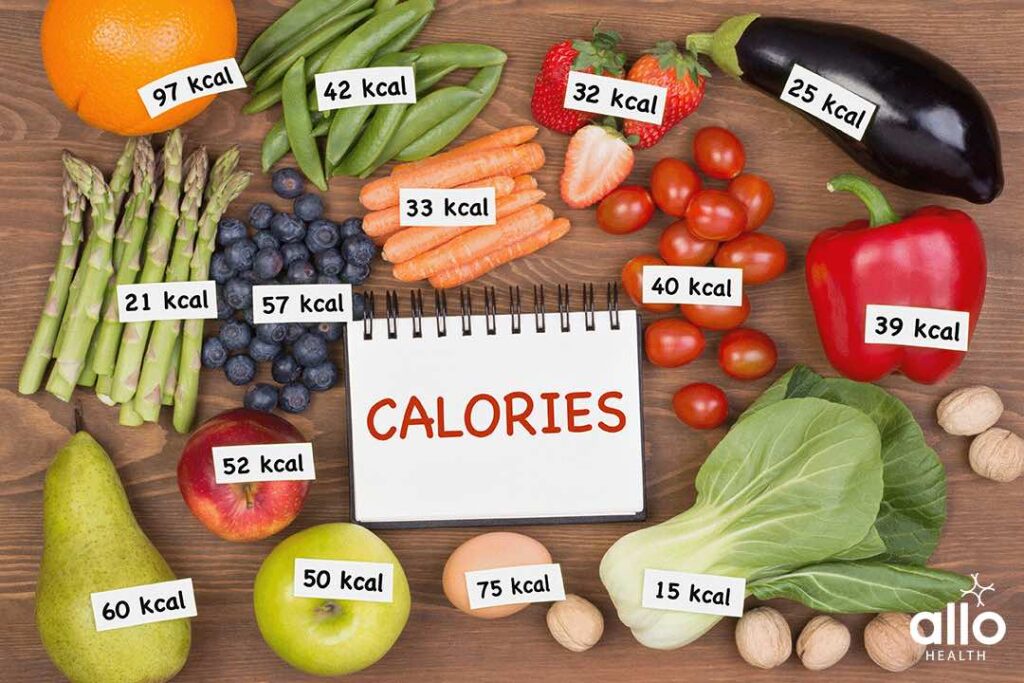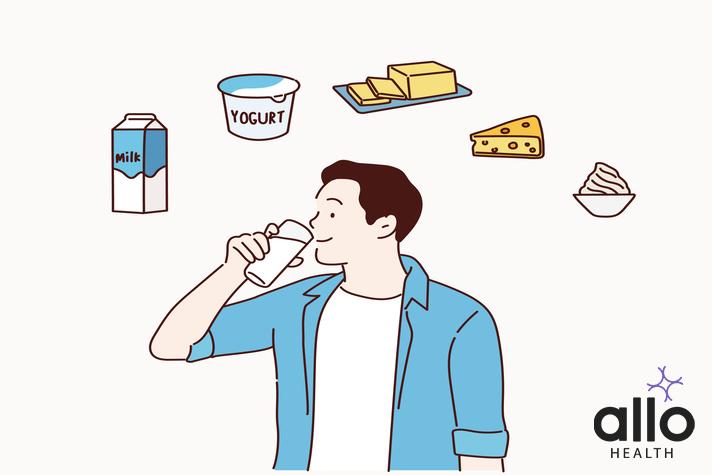Can A Low Calorie Diet Cause Erectile Dysfunction?

Allo Health is dedicated to personalized well-being, offering support and trusted information tailored to individual health goals. The platform emphasizes human-generated content, led by a distinguished medical team of experts, including physicians and sexual health specialists. Their commitment to credibility involves rigorous fact-checking, authoritative research, and continuous updates to ensure accurate, up-to-date information. Allo Health's unique approach goes beyond conventional platforms, providing expert-led insights and a continuous commitment to excellence, with user feedback playing a crucial role in shaping the platform's authoritative voice.

A Psychotherapist with Clinical specialization, working for over seven years now. Areas of specialization range from Anxiety-related disorders, Mood-related disorders, Personality disorders, Sexual dysfunctions & other mental health issues.
Why This Was Upated?
Our experts continually monitor the health and wellness space, and we update our articles when new information became available.
Updated on 11 November, 2023
- Article was updated as part of our commitment to diversity, equity, and inclusion.

"The following blog article discusses food and diet-related information for general educational purposes. However, it is important to note that the information provided is not intended as personalized dietary advice and should not be considered a substitute for professional guidance from a registered dietitian or qualified healthcare professional. Before making any significant changes to your diet or nutrition plan, it is recommended to consult with a registered dietitian or healthcare professional.
Book consultation
Dietary changes can have a significant impact on your overall health and well-being. It is important to approach any changes to your diet in a balanced and sustainable manner, ensuring that you meet your nutritional needs and avoid any potential nutrient deficiencies. Rapid or extreme changes in dietary patterns can be detrimental to your health and may require professional guidance.
It is crucial to note that any specific dietary recommendations or guidelines mentioned in this article may not be appropriate for individuals with specific medical conditions, allergies, or intolerances. A registered dietitian or healthcare professional can provide individualized advice, including modifications or alternative food choices to accommodate your unique circumstances.
The information provided in this article may not encompass all possible dietary considerations or account for the latest research and nutritional guidelines."
In the pursuit of a healthy lifestyle and weight management, many individuals turn to low calorie diets as a solution. However, what if this seemingly beneficial approach to shedding pounds could have unexpected consequences on another important aspect of well-being—sexual health? Recent research has brought to light a surprising association between low calorie diets and erectile dysfunction (ED), a condition that affects a significant number of men worldwide.
Erectile dysfunction, commonly referred to as impotence, is the persistent inability to achieve or maintain an erection suitable for sexual intercourse. While numerous factors can contribute to this condition, such as age, chronic diseases, and lifestyle choices, the potential link between low calorie diets and ED presents a fascinating area of exploration.
On the surface, the connection between a low calorie diet and erectile dysfunction may appear counterintuitive. After all, adopting healthier eating habits and shedding excess weight should logically promote overall well-being, including sexual health. However, the intricate workings of the human body often hold surprising discoveries, and understanding the potential impact of low calorie diets on male sexual function can provide valuable insights into maintaining a holistic approach to health.
So let’s get into the main question, can a low calorie diet cause erectile dysfunction?
Causes of Erectile Dysfunction
Erectile dysfunction (ED), also known as impotence, is a condition characterized by the inability to achieve or maintain an erection sufficient for sexual activity. It can have various causes, both physical and psychological. Here are some of the primary causes of erectile dysfunction:
Physical causes
- Cardiovascular conditions: Conditions that affect blood flow, such as atherosclerosis (narrowing of the arteries), high blood pressure, and heart disease, can interfere with the proper circulation of blood to the penis, leading to erectile dysfunction.
- Diabetes: Chronic high blood sugar levels can damage blood vessels and nerves, affecting the blood flow and nerve function required for an erection.
- Hormonal imbalances: Conditions such as low testosterone levels (hypogonadism) can contribute to erectile dysfunction.
- Neurological disorders: Conditions that affect the nervous system, including multiple sclerosis, Parkinson’s disease, and stroke, can interfere with the nerve signals involved in achieving and maintaining an erection.
- Medications: Certain medications, such as antidepressants, antihypertensives, and drugs used to treat prostate conditions, can have side effects that contribute to erectile dysfunction.
- Peyronie’s disease: This condition involves the development of fibrous scar tissue inside the penis, causing curvature and potentially leading to difficulties with erections.
- Substance abuse: Long-term use of tobacco, alcohol, or illicit drugs can damage blood vessels and impair erectile function. h. Obesity: Excess body weight and obesity can contribute to hormonal imbalances, cardiovascular concerns, and reduced blood flow, all of which can lead to erectile dysfunction. i. Surgery or trauma: Surgeries or injuries that affect the pelvic area, spinal cord, or genitals can cause erectile dysfunction.
Psychological causes
- Anxiety and stress: High levels of stress, performance anxiety, or relationship concerns can interfere with sexual arousal and result in erectile difficulties.
- Depression: This mood disorder can decrease sexual desire and interfere with the brain’s ability to transmit signals that initiate an erection.
- Relationship concerns: Difficulties in a relationship, poor communication, or unresolved conflicts can contribute to erectile dysfunction.
- Mental health disorders: Conditions such as post-traumatic stress disorder (PTSD) and generalized anxiety disorder (GAD) can contribute to erectile dysfunction.
What Is A Low Calorie Diet?
A low-calorie diet is a type of diet that restricts the intake of calories to promote weight loss or maintain a healthy weight. The concept behind a low-calorie diet is to create a calorie deficit, which means consuming fewer calories than your body needs for its daily energy requirements. This deficit forces the body to utilize stored fat as a source of energy, leading to weight loss.
Here are some key points to understand about a low-calorie diet:
- Calorie intake: The specific number of calories allowed on a low-calorie diet can vary depending on factors such as age, sex, weight, height, and activity level. Generally, a low-calorie diet involves consuming between 1,200 and 1,500 calories per day for women and between 1,500 and 1,800 calories per day for men. These numbers are approximate and may vary for each individual.
- Nutrient balance: While the emphasis is on reducing overall calorie intake, it’s important to ensure that the diet is still nutritionally balanced. A well-planned low-calorie diet should provide essential nutrients, including proteins, carbohydrates, healthy fats, vitamins, and minerals. This is crucial to support overall health, prevent deficiencies, and maintain muscle mass.
- Food choices: A low-calorie diet typically focuses on consuming nutrient-dense foods that are lower in calories but still provide essential nutrients. This includes plenty of fruits, vegetables, whole grains, lean proteins (such as poultry, fish, tofu, or legumes), and healthy fats (such as avocados, nuts, and seeds). Processed foods, sugary snacks, high-fat foods, and beverages with added sugars are generally limited or avoided.
- Portion control: Controlling portion sizes is important when following a low-calorie diet. Measuring food portions, using smaller plates and bowls, and being mindful of serving sizes can help manage calorie intake. Additionally, practicing mindful eating by paying attention to hunger and fullness cues can prevent overeating.
- Meal planning: Planning meals and snacks in advance can make it easier to stick to a low-calorie diet. Meal prepping and having healthy, portion-controlled options readily available can help avoid impulsive food choices and make it easier to stay within the calorie limits.
- Monitoring progress: Regularly tracking your food intake and monitoring your weight can be helpful when following a low-calorie diet. Keeping a food diary or using smartphone apps can assist in monitoring calorie intake. However, it’s important to remember that sustainable weight loss is gradual, and losing 1-2 pounds (0.5-1 kg) per week is generally considered healthy.
Before starting any diet, including a low-calorie diet, it’s advisable to consult with a healthcare professional or a registered dietitian. They can provide personalized guidance based on your specific needs, goals, and any underlying health conditions you may have.
Can A Low Calorie Diet Cause Erectile Dysfunction?

A low-calorie diet itself is not a direct cause of erectile dysfunction (ED). However, extreme or prolonged calorie restriction, leading to rapid weight loss or malnutrition, can contribute to certain factors that may indirectly affect sexual function and increase the risk of ED. Here are some points to consider:
- Nutrient deficiencies: Severely restricting calories without proper guidance or supervision can result in inadequate intake of essential nutrients. Certain nutrients, such as zinc, vitamin D, vitamin E, and omega-3 fatty acids, play a role in maintaining sexual health and hormone production. Deficiencies in these nutrients can potentially affect sexual function.
- Hormonal imbalances: Hormonal imbalances can occur with significant weight loss or malnutrition. Insufficient calorie intake can disrupt hormone levels, including testosterone, which is important for sexual function. Low testosterone levels can contribute to ED.
- Psychological factors: Low-calorie diets, especially those that are very restrictive or involve rapid weight loss, can lead to psychological stress, anxiety, or body image concerns. These factors can have an impact on sexual desire and performance.
- Fatigue and low energy levels: When following a low-calorie diet, energy levels can be reduced due to a limited calorie intake. Fatigue and low energy can affect sexual desire and performance.
- Circulatory system: Obesity and excess body weight are risk factors for ED. In some cases, low-calorie diets are undertaken to achieve weight loss. While weight loss can improve overall health and reduce the risk of ED in overweight individuals, extreme or rapid weight loss can also affect the circulatory system and blood flow, which are important for achieving and maintaining an erection.
The impact of a low-calorie diet on sexual function can vary depending on individual factors, such as overall health, underlying medical conditions, and the specific approach to the diet. To minimize the potential risks, it is advisable to follow a low-calorie diet under the supervision of a healthcare professional or a registered dietitian who can ensure that nutrient needs are met and monitor any potential adverse effects.
Maintaining a balanced diet, incorporating regular physical activity, managing stress levels, and prioritizing overall health can also help support sexual function. If you experience persistent or concerning sexual concerns, it’s recommended to consult with a healthcare professional for appropriate evaluation and guidance.
Foods To Include In a High-Calorie diet
A high-calorie diet is typically recommended for individuals who have difficulty gaining weight or need to increase their calorie intake for various reasons, such as athletes, people recovering from illness or surgery, or those with a high metabolic rate. When following a high-calorie diet, it’s important to focus on nutrient-dense foods to ensure that you’re meeting your nutritional needs. Here are some foods to include in a high-calorie diet:
- Healthy fats: Include foods rich in healthy fats, such as avocados, nuts, seeds, nut butters, olive oil, and fatty fish like salmon. These foods are high in calories and provide essential fatty acids, which are important for overall health.
- Nutrient-dense carbohydrates: Choose complex carbohydrates that provide energy and essential nutrients. Examples include whole grains like quinoa, brown rice, oats, whole wheat bread, and pasta. Fruits and vegetables should also be included for their vitamins, minerals, and fiber content.
- Protein-rich foods: Include lean protein sources like chicken breast, turkey, fish, lean cuts of beef or pork, eggs, tofu, legumes (beans, lentils, chickpeas), and dairy products. Protein is important for muscle growth and repair.
- Full-fat dairy products: Opt for full-fat versions of milk, yogurt, and cheese to increase calorie intake. These products are rich in protein, calcium, and other essential nutrients.
- Nuts and nut butters: Almonds, cashews, peanuts, and their respective butters are calorie-dense and provide healthy fats and protein. They can be added to meals, snacks, or smoothies.
- Dried fruits: Dried fruits like dates, raisins, apricots, and prunes are higher in calories compared to fresh fruits due to the removal of water content. They can be used as snacks or added to cereals, yogurt, or baked goods.
- Smoothies and shakes: Make calorie-rich smoothies or shakes by blending fruits, vegetables, nut butter, milk or yogurt, and protein powder if desired. This allows you to consume a larger volume of calories in a convenient and easily digestible form.
- Healthy snacks: Incorporate calorie-dense snacks like trail mix, energy bars, granola bars, cheese and crackers, hummus with whole grain pita bread, or Greek yogurt with honey and nuts.
- Healthy oils and dressings: Use oils like olive oil, coconut oil, or avocado oil for cooking or as dressings for salads. They provide extra calories and healthy fats.
- Extra servings: Increase portion sizes of meals by adding an extra scoop of rice or pasta, additional toppings like cheese or sauces, and larger servings of protein sources.
Remember that while consuming a high-calorie diet, it’s important to prioritize nutrient density and choose foods that provide essential vitamins, minerals, and other beneficial compounds. It’s advisable to work with a healthcare professional or registered dietitian to create a personalized meal plan that meets your specific needs and helps you achieve your health goals.

Tips To Follow To Increase Your Calorie Intake
Increasing calorie intake can be achieved by incorporating specific strategies and making adjustments to your eating habits. Here are some tips to help you increase your calorie intake:
- Eat more frequently: Increase the frequency of your meals and snacks throughout the day. Aim for three main meals and include calorie-dense snacks in between.
- Increase portion sizes: Gradually increase the portion sizes of your meals to consume more calories. Add an extra scoop of rice, pasta, or a larger serving of protein to your plate.
- Include calorie-dense foods: Choose foods that are higher in calories to maximize your intake. Examples include avocados, nuts, nut butters, seeds, olive oil, full-fat dairy products, and dried fruits.
- Snack strategically: Incorporate calorie-dense snacks between meals to boost your calorie intake. Trail mixes, energy bars, granola bars, and cheese and crackers are good options.
- Add healthy fats: Include healthy fats in your meals. Add extra olive oil or avocado slices to your salads, use full-fat dressings, and cook with healthy oils like coconut oil or avocado oil.
- Consume calorie-rich beverages: Drink calorie-rich beverages such as smoothies, milkshakes, fruit juices, or nutritional supplement drinks. These can provide a significant calorie boost.
- Opt for dense carbohydrates: Choose complex carbohydrates that are calorie-dense, such as whole grains, starchy vegetables (like potatoes and sweet potatoes), and legumes.
- Incorporate protein-rich foods: Include lean proteins like chicken breast, turkey, fish, lean cuts of beef or pork, eggs, tofu, and legumes. Protein-rich foods can help increase overall calorie intake.
- Snack before bed: Have a calorie-dense snack before going to bed, such as a protein shake, a small sandwich, or a bowl of cereal with milk. This can provide extra calories during the night.
- Cook with calorie-boosting ingredients: Enhance the calorie content of your meals by cooking with ingredients like butter, cheese, cream, and sauces.
- Keep track of your intake: Use a food diary or a smartphone app to monitor your calorie intake. This will help you stay accountable and identify areas where you can increase your calorie consumption.
- Seek professional guidance: If you’re struggling to increase your calorie intake or have specific dietary requirements, consider consulting a registered dietitian who can provide personalized advice and meal plans.
We encourage you to prioritize nutrient density even when increasing calorie intake. Aim to choose whole, unprocessed foods whenever possible and focus on incorporating a balance of macronutrients (carbohydrates, proteins, and fats) to support overall health and wellbeing.
Frequently Asked Questions
(1) Are nutrient deficiencies related to low-calorie diets linked to erectile dysfunction?
Yes, severe calorie restriction in low-calorie diets can lead to nutrient deficiencies, which may indirectly contribute to erectile dysfunction (ED). Certain nutrients, such as zinc, vitamin D, vitamin E, and omega-3 fatty acids, play a role in maintaining sexual health and hormone production. Deficiencies in these nutrients can potentially affect sexual function. It’s important to ensure that a low-calorie diet is still nutritionally balanced and provides essential nutrients to support overall health and wellbeing.
(2) Is it advisable to consult a healthcare professional before starting a low-calorie diet to prevent erectile dysfunction?
Yes, it is advisable to consult with a healthcare professional or a registered dietitian before starting any diet, including a low-calorie diet, to ensure that it is appropriate for your individual needs. They can provide personalized guidance based on your specific goals, health conditions, and any potential risks or concerns, including the potential impact on sexual function.
(3) Can a low-calorie diet affect hormone levels and testosterone, leading to erectile dysfunction?
Yes, severe calorie restriction in a low-calorie diet can disrupt hormone levels, including testosterone. Testosterone is important for sexual function, and low testosterone levels can contribute to erectile dysfunction (ED). It’s important to ensure that a low-calorie diet provides sufficient calories and nutrients to support hormone production and overall health.
(4) How can one minimize the risk of erectile dysfunction while following a low-calorie diet?
To minimize the potential risk of erectile dysfunction while following a low-calorie diet, it’s advisable to follow the diet under the supervision of a healthcare professional or a registered dietitian. They can ensure that the diet is nutritionally balanced and provides sufficient calories and essential nutrients. Additionally, maintaining a balanced diet, incorporating regular physical activity, managing stress levels, and prioritizing overall health can also help support sexual function. If you experience persistent or concerning sexual concerns, it’s recommended to consult with a healthcare professional for appropriate evaluation and guidance.
(5) Can a low-calorie diet cause long-term erectile dysfunction?
While a low-calorie diet itself is unlikely to cause long-term erectile dysfunction (ED), prolonged and extreme calorie restriction can contribute to factors that may indirectly affect sexual function. Nutrient deficiencies, hormonal imbalances, psychological stress, and fatigue associated with long-term low-calorie diets can impact sexual health. However, addressing these factors and adopting a balanced approach to nutrition and overall health can help mitigate the risk of long-term ED.
(6) Is there a specific calorie range that can help prevent erectile dysfunction?
There isn’t a specific calorie range that can definitively prevent erectile dysfunction (ED). Calorie needs vary depending on factors such as age, sex, weight, height, and activity level. However, it’s important to ensure that the calorie intake is sufficient to meet the body’s energy requirements and support overall health. Working with a healthcare professional or a registered dietitian can help determine an appropriate calorie range based on individual needs and goals.
(7) Can a low-calorie diet improve erectile dysfunction caused by obesity?
Yes, for individuals who are overweight or obese, a low-calorie diet can help improve erectile dysfunction caused by obesity-related factors. Weight loss achieved through a low-calorie diet can reduce the risk of obesity-related health conditions, including ED. However, it’s important to ensure that weight loss is gradual and sustainable, and that the diet still provides essential nutrients to support overall health.
(8) Can exercise be combined with a low-calorie diet to prevent or manage erectile dysfunction?
Yes, combining exercise with a low-calorie diet can be beneficial for preventing or managing erectile dysfunction. Regular physical activity can help improve overall cardiovascular health, enhance blood flow, and support sexual function. However, it’s important to ensure that calorie intake is sufficient to meet the energy demands of exercise and support exercise performance. Consultation with a healthcare professional or a registered dietitian can provide guidance on incorporating exercise and maintaining a balanced diet for optimal results.
(9) Are there any other lifestyle factors to consider to prevent or manage erectile dysfunction?
In addition to diet, several other lifestyle factors can contribute to preventing or managing erectile dysfunction. These include managing stress levels, getting adequate sleep, avoiding smoking and excessive alcohol consumption, and maintaining a healthy weight. Engaging in open communication with a partner and seeking professional help, such as therapy or counseling, can also be beneficial in addressing any psychological factors contributing to ED. Taking a comprehensive approach to overall health and wellbeing can support sexual function and prevent or manage erectile dysfunction.







































